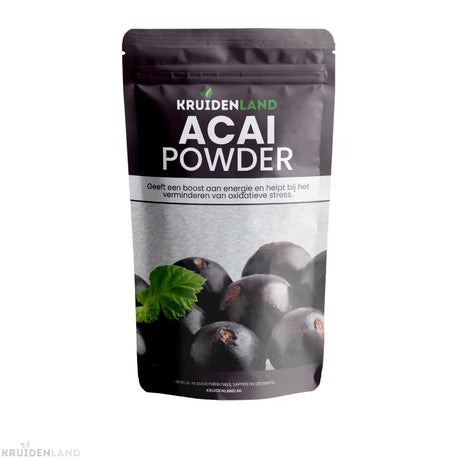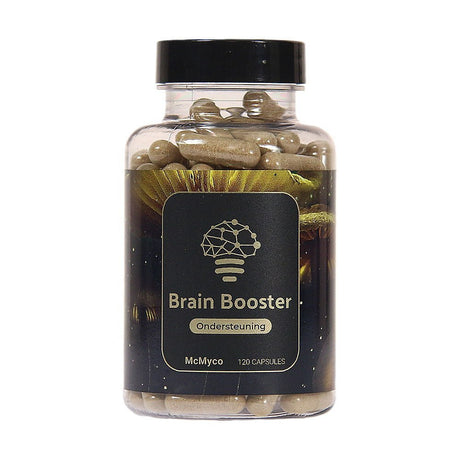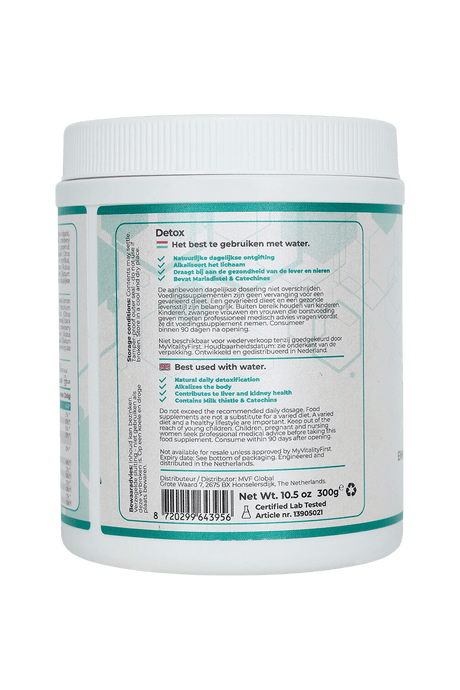Vitamin D is an essential nutrient that plays a crucial role in our health. It supports the immune system, helps absorb calcium for strong bones, and contributes to healthy muscle function. Yet, many people, especially during the winter months, struggle with a vitamin D deficiency without realizing it. In this article, we discuss the symptoms, causes, and ways to maintain your vitamin D levels.
Why is vitamin D so important?
Vitamin D is actually a hormone that our body produces when the skin is exposed to sunlight. It has numerous benefits:
-
Supports the immune system and helps fight infections.
-
Contributes to strong bones and teeth by promoting calcium absorption.
-
Helps with muscle function and prevents muscle weakness .
-
Plays a role in mood and mental health ; deficiency is often linked to depression and fatigue.
What are the symptoms of a vitamin D deficiency?
A vitamin D deficiency can have subtle but profound effects. The most common symptoms include:
1. Fatigue and low energy
One of the most common symptoms is chronic fatigue. People with low vitamin D levels often feel lethargic, even after a good night's sleep.
2. Muscle weakness and joint pain
Vitamin D helps maintain strong muscles. A deficiency can lead to muscle cramps, weakness and even muscle loss, which increases the risk of falls, especially in the elderly.
3. Painful bones and joints
Because vitamin D plays an essential role in calcium absorption, people with a deficiency may experience bone pain or even osteoporosis later in life.
4. Depressive feelings and mood swings
Research shows that vitamin D deficiency can contribute to feelings of depression, mood swings and even seasonal depression (winter blues).
5. Weakened immune system
People with a vitamin D deficiency get sick more easily and have an increased risk of infections such as flu and colds.
6. Slow healing wounds
If you notice that cuts or bruises take longer to heal, this could be a sign of a vitamin D deficiency. It plays a role in cell repair and inflammation reduction.
7. Hair loss
While hair loss can have multiple causes, such as stress or hormonal changes, a vitamin D deficiency can also contribute to excessive hair loss.
Causes of Vitamin D Deficiency
Several factors can contribute to vitamin D deficiency:
-
Little exposure to sunlight – People who spend a lot of time indoors or live in a country with little sunlight produce less vitamin D.
-
Dark skin tone – Melanin reduces the absorption of UVB radiation, so people with dark skin need more exposure to sunlight.
-
Age – As we age, vitamin D production in the skin becomes less efficient.
-
Inadequate dietary intake – Vitamin D is rarely found naturally in foods, making it difficult to get enough through diet alone.
-
Obesity – Vitamin D is fat-soluble and is stored in fatty tissue, making it less available in the bloodstream.
How can you supplement a vitamin D deficiency?
Fortunately, there are several ways to maintain your vitamin D levels.
1. Sunlight: the natural source
The best way to make vitamin D is to get 20-30 minutes of direct sunlight on your skin (without sunscreen) every day. In the winter this is more difficult, so supplementation may be necessary.
2. Vitamin D-rich foods
Although vitamin D is rare in foods, there are some good sources:
-
Fatty fish (salmon, mackerel, tuna)
-
Eggs
-
Fortified dairy products and plant-based milks
-
Cod liver oil
3. Supplementation: a simple solution
For many people, especially in the fall and winter, a vitamin D supplement is the most effective solution. The recommended daily amount varies, but for adults 1000-2000 IU (International Units) per day is often recommended. In case of a severe deficiency, a higher dosage may be temporarily necessary, but always consult a doctor.
Conclusion
Vitamin D deficiency is more common than you think and can negatively impact your energy, mood and overall health. By being aware of sunlight, food and supplements, you can ensure that your vitamin D levels remain at the right level. Not sure if you have a deficiency? Consider a blood test and consult a specialist for personal advice.
Want to top up your vitamin D levels right away? Check out our vitamin D supplements and choose the best option for your health!















